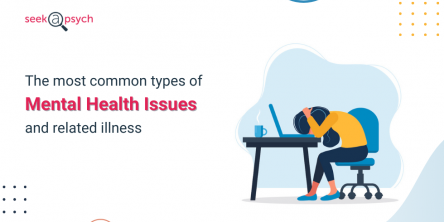How to Embrace and Understand Our Emotions
For far too long, society has been putting pressure on us to avoid most of our emotions. Out of the five core emotions - fear, hurt, anger, sadness, and joy - the emphasis tends to be on the last one.
Social media prides us on relentless positivity. You are encouraged to persevere through challenging situations with a smile on your face and then praised for being so strong. Many of us even feel ashamed when we think of a “bad” emotion like sadness or anger, and instead, we opt to keep those feelings to ourselves while we put on a cheerful façade for the rest of the world.
Fortunately, this attitude is changing, and more and more psychologists and other health professionals these days understand that it is crucial to embrace and understand all of your emotions.
Emotional awareness
Being conscious of your emotions is just one part of the equation. You need to understand what you are feeling, but also why. This skill is known as emotional awareness.
Understanding your emotions can help you establish an emotional balance, relate to other people, know what and why you want, and make choices. Even emotions we consider “negative” (like anger or sadness) can give you insight into yourself and others.
Emotional awareness gives you control, even when external situations are out of your control, and help you know which emotions you feel and why. It also allows you to realize the links between your feelings and what you think, do, and say. It helps you be mindful of yourself and your correlation with others.
It also helps you to have a guiding understanding and clarity of what your values and goals are and how you can act accordingly to get there. The awareness of how your emotions and thought patterns affect what you are doing is the foundation of emotional competence. If you lack self-awareness, you are vulnerable to being sidetracked by emotions.
How to get in touch with your feelings
Here are the steps you should take if you want to embrace and better understand your emotions:
Name the feelings you experience
As we grow older, our emotions become more nuanced. Learn to identify less commonly named ones, including shock, shame, anxiety, disgust, boredom, amusement, desperation, doubt, etc.
Simply start by just noticing different emotions as you feel them. Name them to yourself. For example, you might say, “I feel proud” when a class presentation goes well, “I feel depressed” after a traumatic event, or “I feel friendly” when sitting with a group at lunch.
Labeling your feelings is essential if you want to make the best possible decisions. It’s easier to make better choices when you understand precisely what you’re feeling at the moment and how it could cloud your judgment.
Keep track of a particular emotion
Pick a familiar sentiment — like joy — and track it throughout the day. Notice how often you feel it and when.
Whenever that emotion shows up, you can simply make a mental note to yourself or - even better - write it down in a journal. Notice where you are, who you’re with, and what you’re doing when that emotion is present. Note how intense that particular emotion is at different times. This can be a helpful exercise in learning what to embrace or avoid in your daily life to manage your feelings better.
Remember that there are no bad emotions
A lot of people go through their lives giving their best to avoid discomfort. However, wasting all of their energy to prevent it is exactly what makes them feel uncomfortable almost all the time.
In fact, the more you expose yourself to things that make you feel uncomfortable, the more confident you will become about your ability to tolerate distress. It’s not wrong to be sad—it’s a part of life.
Remember: you can’t experience the good without the bad. Instead of hiding or denying certain emotions, remind yourself that all feelings are natural and human. Once you’ve healed from the sadness or anger of a situation, you’ll be a stronger person.
Write down what you are feeling
Many of us have trouble verbalizing our feelings because we don’t know how to explain them. Writing them down is a useful way to familiarize yourself with the ways you can define your feelings. Keeping a journal of your emotions can do wonders for mental health.
You also can express an emotion creatively. Make art, write poetry, or compose music that captures a specific feeling you’re feeling.
Healthily express your emotions
Once you’ve learned to name and track emotions, you need to know what to do with them. Understanding your feelings may lead you to have healthy conversations with loved ones.
We can share what we’ve learned about ourselves to others, receive support, and provide empathy for one another. Same as with writing, find out what helps you process your emotions, and be as creative as you want in expressing yourself.
Similar Articles
Anxiety is a normal part of life. It's the outcome of being overworked. However, worry caused by stress is not always a bad thing. It warns you of danger, pushes you to stay organized and ready, and aids in risk assessment.
Anxiety is a normal human emotion that everyone experiences from time to time. It is often characterized by feelings of unease, worry, fear, or apprehension about upcoming events or uncertain situations. Anxiety becomes a concern when it is excessive, persistent, and interferes with daily life.
Anxiety is a widespread mental health problem that affects many people all over the world. It is characterized by worry, tension, and fear, which can interfere with normal life. While anxiety is reasonable in some situations, severe and chronic anxiety can be exhausting and require professional support.
Mental illness is a common concern we hear every day. 3 out of every 5 people are suffering from a mental illness or distress causing difficulty. Thus, it is essential to be fully aware of the common types of mental health issues and related illnesses.
With the COVID pandemic entering its second year, many of us have to cope with the ongoing stress of anxiety, depression, fear, and many other issues.
Anxiety is a feeling of worry or fear. We are all aware of this feeling, and depending on what is causing the anxiety, it can be mild or severe. However, when anxiety becomes long-lasting and one is unable to get rid of it, it can impact a person’s daily functioning.
Are you in a problem with anxiety? This is the article where you will learn how to more effective your anxiety treatment.
For both the patient and the caregivers, the condition of dementia is a burden, which comes with many limitations and problems. In order to make the course of the disease nevertheless as pleasant and helpful as possible, you can use various tips and tricks in dementia care, which make it easier to deal with the patient.
Your brain holds the reins of your courage by creating or accepting societal suitability rules 'au fait'. You only see what you are 'programmed' to see. Weakened ability to see means that your assessment skills critically slump and destroy your image of the world. With this realization, easy and accessible self-improvement techniques are at your arm's lengths




76f4.jpg)






